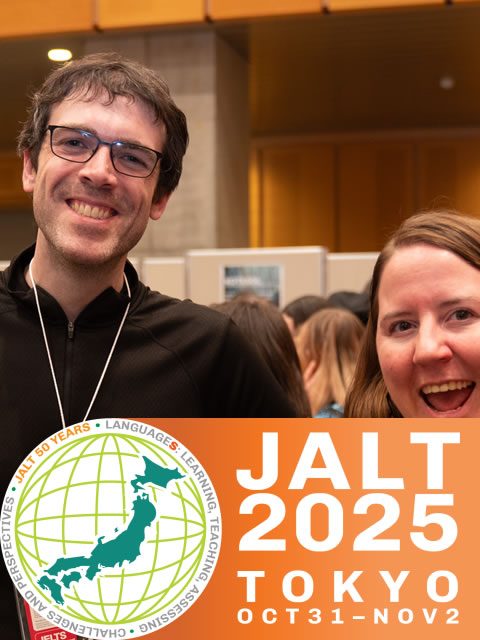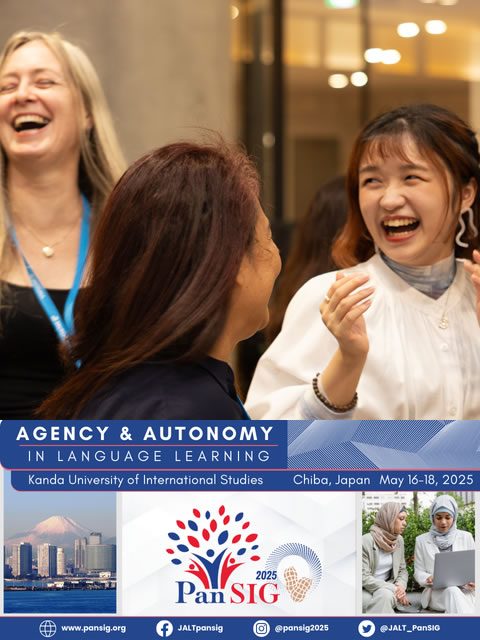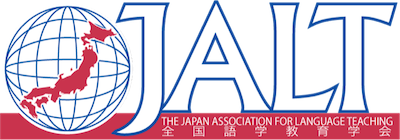Your cart is currently empty!
Plenary Speakers
•
Christine Pearson Casanave
James P. Lantolf
Aya Matsuda
Merrill Swain
Scott Thornbury
Perspective Taking
Christine Pearson Casanave
Temple University, Japan
In this talk I discuss perspective taking, the ability to see the world through someone else’s eyes. This can happen if people actually experience something that another person or group has experienced, or if they imagine themselves in the shoes of another. In my talk, I refer to both types of perspective taking. In particular, I discuss the following:
what it might be like to be a student in our own classrooms;
what insights we can glean from our own language learning experiences;
what it might be like to be a reader of our own writing; and
what it is like to do scholarly reading and writing in an L2.
Reflecting on our teaching, learning, and professional writing from diverse perspectives can help us expand how we understand our students and our work as second language educators.
本発表では、パースペクティブ・テイキング、すなわち他人の眼で世界を見る能力について論じる。これが行われるのは、別の人や集団が経験したことを実際に経験した場合や、他人の身になって想像する場合である。私の発表では両方の種類のパースペクティブ・テイキングについて言及する。特に以下の点について論じる。
私たち自身のクラスの生徒になってみるというのはどのようなものなのか。
私たち自身の言語学習経験からどのような洞察を得ることができるのか。
私たち自身が書いたものの読者になってみるというのはどのようなものなのか。
第2言語で学術的な読み書きをするというのはどのようなものなのか。
私たちの教授、学習および職業的執筆について様々な視点から反省することによって、私たちが生徒を理解したり、第2言語教育者としての自分の仕事を理解したりする幅を広げることが可能となる。
Christine Pearson Casanave lived and worked in Japan for over 15 years, most of them at Keio University’s Shonan Fujisawa Campus, and also as adjunct at Teachers College Columbia University and visiting professor and adjunct at Temple University Japan. She has a special fondness for writing (reflective and essay writing, academic writing, writing for publication), for professional development of language teachers, and for narrative, case study, and qualitative inquiry. One of her long-term goals is to help expand the accepted styles of writing in the TESOL field, and another is to argue for more humanistic, less technology-driven second language education.
The dialectics of instructed second language development
James P. Lantolf
Greer Professor of Language Acquisition and Applied Linguistics, Department of Applied Linguistics, the State University of Pennsylvania, Co-Director of the Center for Advanced Language Proficiency Education and Research.
This presentation emerges from an on-going project on the implications of dialectics in Vygotsky’s theory of consciousness for instructed second language development. Although most L2 research informed by sociocultural theory asserts that mediation through social interaction and cultural artifacts forms the foundational concept of the theory, I will argue that the real key to the theory is found in the notion of praxis—a notion that Vygotsky appropriated from Marx. The crucial feature of praxis in its contemporary version is the dialectic unity of consciousness (knowledge/theory) and action that gives rise to new forms of understanding and behaving. In making the case for praxis and language education, I will explain dialectics (i.e., the unity or fusion of opposites) with specific examples and will then discuss evidence from several studies that sustain the effectiveness of a praxis-based pedagogy for promoting language development.
本発表は、教授される第2言語の発達のためのヴィゴツキーの意識の理論における弁証法の関わり合いに関して現在行われているプロジェクトに由来するものである。社会文化理論に立脚した第2言語の研究のほとんどにおいては、社会的相互作用および文化的産物による仲介が同理論の基本概念を形成するとの主張がなされているのに対し、私は、同理論への本当の鍵はプラクシスの概念―ヴィゴツキーがマルクスから借用した概念―にあると主張する。現代版プラクシスにおける重要な特徴は、意識(知識・理論)と行動の弁証法的統一性であり、これにより理解と振る舞いの新たな形態が生じる。プラクシスおよび言語教育を推進するにあたり、私は具体的な例を用いて弁証法(対立するものの統一または融合)を説明し、次に、言語発達の促進におけるプラクシスに基づいた教授法の効果を立証するいくつかの研究からの証拠について論じる。
James P. Lantolf is the Greer Professor in Language Acquisition and Applied Linguistics in the Department of Applied Linguistics at Pennsylvania State University. He is Director of the Center for Language Acquisition and co-Director of CALPER (Center for Advanced Language Proficiency Education and Research). He has served as president of the American Association for Applied Linguistics, and his publications include numerous papers on sociocultural theory and L2 learning, a co-authored book with S. Thorne and three edited or co-edited books on sociocultural theory.
Globalization and English Language Teaching: Opportunities and Challenges in Japan
Aya Matsuda
Assistant Professor of Language and Literacy, Division of Curriculum and Instruction, Arizona State University
The global spread of English and its extensive use as an international language has made English a popular foreign language option across the world. The national curriculum in Japan, for instance, specifies that English be taught as the required foreign language in middle schools because it is an international language. English is also the de facto foreign language offering in senior high schools and continues to play important roles in college and beyond. However, the linguistic, cultural, and functional diversity of English today complicates ELT practice by challenging some of its most basic assumptions. In my talk, I first present the current sociolinguistic landscape of the English language and illustrate how “traditional” ELT that focuses exclusively on US/UK English and culture is not adequate in preparing effective users of English as an International Language. Specific changes that can be incorporated into a traditional English curriculum are also suggested.
英語は地球規模で広まっており、国際語として広範に使用されているため、英語は世界中で一般的な外国語の選択肢となっている。たとえば日本における国の教育課程では、英語は国際語であることから、これを中学校における必須外国語として教えなければならないと定められている。また英語は、高等学校における事実上の外国語科目であり、大学以上でも重要な位置を占めている。しかしながら、今日の英語の言語学的、文化的および機能的多様性から、ELTの実践は、その最も基本的な前提のいくつかが揺らいでいるため困難になっている。私の発表では、まず英語の現在の社会言語学的状況を呈示し、それから米英の英語と文化にのみ焦点を当てた「伝統的」ELTが国際語としての英語の有能な話者の育成に不適切であることを明らかにする。また、伝統的な英語課程に組み込むことのできる具体的な改革案も提案する。
Aya Matsuda is Assistant Professor of Language & Literacy and Applied Linguistics at Arizona State University, where she teaches undergraduate and graduate courses in applied linguistics. Her research interests include the pedagogical implications of the global spread of English, integration of the World Englishes perspective into US education, and the role of Japanese heritage school for Japanese families in the US. Her work focusing on these issues have appeared in various books and journals including JALT Journal, TESOL Quarterly, and World Englishes. Dr. Matsuda is originally from Japan, speaks English and Japanese fluently, and is raising her child bilingually.
Languaging and second/foreign language learning
Merrill Swain
Professor Emeritus, Ontario Institute for Studies in Education, University of Toronto
The goal of this talk is that the audience leaves with an understanding of the concept of “languaging” and why it is important for second/foreign language teachers (and learners) to know about. Languaging is a concept that has emerged from Vygotsky’s sociocultural theory of mind. For Vygotsky, language is not just a means of social communication, but a tool of the mind: language mediates our thinking and cognition. Languaging is the use of language to mediate cognitively complex acts of thinking. It is “the process of making meaning and shaping knowledge and experience through language” (Swain, 2006). In it, we can see learning in progress. Students who engage in more languaging learn more than those who engage in less languaging. This has been demonstrated over many knowledge domains, including biology, mathematics, and language. In this talk, I will illustrate the power of languaging with excerpts from students who are learning a second or foreign language.
本発表の目的は、「ランゲージング」の概念と、第2言語・外国語の教師(および生徒)がこの概念について知っておくことがなぜ重要なのかを聴衆に理解してもらうことである。
ランゲージングとは、精神に関するヴィゴツキーの社会文化理論に由来する概念である。ヴィゴツキーによれば、言語とは単なる社会的意思疎通手段ではなく、精神のツールである。すなわち、言語は我々の思考・認識を媒介するのである。ランゲージングとは、言語を用いて思考という認識的に複雑な行為を媒介することである。ランゲージングは、「言語を通じて意味を形成し、知識と経験を形作るプロセス」(Swain、2006年)である。
ランゲージングにおいて、我々は学習の進行過程を観察することができる。
ランゲージングを行っている生徒ほど学習効率は高い。これはたとえば生物学、数学および語学といった多くの知的領域で示されている。本発表では、第2言語・外国語を学んでいる生徒からの引用によってランゲージングの力を明らかにする。
Merrill Swain is Professor Emeritus in the Department of Curriculum, Teaching, and Learning at OISE/University of Toronto. Author of over 150 articles and many book chapters on bilingual/immersion education in Canada and communicative L2 learning, teaching and testing, Dr. Swain is an award-winning educator, writer and scholar. She frequently gives workshops and lectures internationally, recently in the Asia Pacific region, Europe, and North America.
Seven ways of looking at grammar: One way of looking at grammar–as “Grammar McNuggets”
Scott Thornbury
Associate Professor of English Language Studies, the New School (New York)
What is grammar and how is it internalised in the mind? Is it symbolic code or is it neural connection strengths? Is it the sedimented trace of previous conversations or is it an innate human capacity? However we answer these questions obviously has an impact on the way we go about teaching second languages. In this talk I will review some of the key models of grammar–often couched as metaphors–and look at their implications in terms of classroom practice. In so doing, I will suggest that models grounded in both sociolinguistics and psycholinguistics offer a more valid basis for teaching than do purely linguistic descriptions.
文法とは何か?そして文法はどのように精神において内面化されるのか?文法とは象徴的なコードなのか?それとも神経連絡の強さなのか?文法とは以前の会話の堆積した跡なのか?それとも先天的な人間の能力なのか?我々がこれらの問いにどのように答えるにせよ、それは第2言語の教え方に影響を及ぼすのは明らかである。本発表では、文法の重要なモデルのいくつかを時に比喩で包みながら取り上げ、その影響を教室での実践について見ていく。こうする中で、純粋に言語学的な記述よりも、社会言語学および心理言語学の両方に根ざしたモデルの方が有効な教授基盤を提供することを示す。
Scott Thornbury has an MA (TEFL) from the University of Reading and is currently Associate Professor of English Language Studies at the New School in New York City, where he teaches on an online MATESOL program. His previous experience includes teaching and training in Egypt, UK, Spain, and in his native New Zealand. His writing credits include several books for teachers on language and methodology, including About Language, Conversation: From Description to Pedagogy (with Diana Slade), and The CELTA Book (with Peter Watkins), all for Cambridge University Press. He is series editor for the Cambridge Handbooks for Teachers.

JALT2025 International Conference
2025年10月31日(金)〜2025年11月02日(日) 東京都渋谷 国立オリンピック記念青少年総合センター Friday, October 31 – Sunday, November 02, 2025 • National Olympics Youth Memorial Center, Tokyo, Japan

PanSIG Conference
PanSIG 2025 will be held May 16-18 in Chiba. PanSIG is an annual conference organized by JALT’s Special Interest Groups (SIGs).
